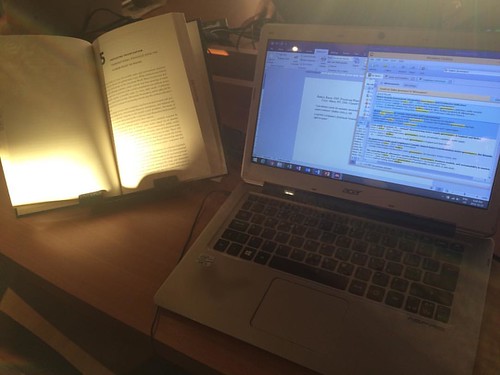While I have pushed for reflection and slow scholarship in my blog, I have to admit that some of the less romantic and glamorous parts of academia don’t particularly excite me. I call that “the grunt work“.
This is grunt work: Cleaning up THIRTEEN references I just imported into Mendeley pic.twitter.com/OT3BX4QQge
— Dr Raul Pacheco-Vega (@raulpacheco) October 19, 2016
Like many people in my profession (academia), I find it hard to motivate myself. Even with my own tricks and “hacks”, where I convince my brain that I can knock off a few Quick Wins by finishing simpler tasks in blocks of 30 minutes, where I do granular planning and break down each component of a project into thirds (the Rule of Three method), even though I focus on just ONE task at a time, it’s hard for me to get motivation. And doing the grunt work doesn’t excite me either.
Even worse, sometimes, writing IS grunt work, as writer Jodi Picoult emphasizes.
#AcWri advice by @jodipicoult : writing IS grunt work. pic.twitter.com/kcwAsucLde
— Dr Raul Pacheco-Vega (@raulpacheco) October 31, 2016
Writing memoranda, rhetorical precis and extracting quotations to fill your Excel conceptual synthesis dump sheet? Grunt work.
I would LOVE to say that as soon as I turn on my laptop, Word immediately launches and I can start typing sentences that are coherent, and that I write for 2 hours and that life is good and I have a solid 2,500 words by the end of my morning session. This isn’t the case.
Let me tell you a little story, just from the past couple of days. I am coauthoring a book chapter with a colleague in Germany. To work on this chapter, I needed to do the following:
- Print out his email to me, and the chapter draft he sent me.
- Read my coauthor’s requests and map out in my Drafts Review Matrix what I was going to do.
- Start going through the table, all the while deciding what I could realistically finish in the time I was allocating for the edition of this chapter.
- Search Mendeley for the right references I needed to insert to back up my argument.
- Since I am not the lead author on this particular chapter, I had to make sure to insert the references and then create a bibliography from where he could copy the references he needed (he uses EndNote and I use Mendeley, which can make coauthoring a bit complicated).
- Type an email responding with the changes I made.
Of the list of activities I show above, only ONE would count ordinarily as “writing” (e.g. producing text). But as I have argued before, typing the email response, creating the Draft Review Matrix, writing the list of items I had to edit, all of this was grunt work, and therefore, it should also count as writing.
What counts as grunt work?
- Cleaning up Mendeley (or Zotero or RefWorks) references.
- Highlighting and scribbling on the margins of papers you read.
- Searching for references in academic databases, downloading them, properly labeling them, organizing them into folders, uploading to Mendeley, printing them, labeling them with plastic tabs, organizing them within magazine holders.
- Writing your To-Do list and organizing your weekly project activity board.
- Searching the web for newspaper stories, clipping them into Evernote, sorting them and properly labeling them, creating a new Notebook, etc.
- Downloading a new database and cleaning it into a workable dataset.
- Writing (and cleaning) the R/Stata/MatLab code for your regressions.
- Transcribing interviews to be able to dump the text into MAXQDA or Dedoose or Atlas.ti
- Scribbling notes for your lectures and then typing them into a Power Point file.
I wish the grunt work were valued as much as the actual production of words. But all academic activity includes a certain amount of this type of activity. I hope we can find a way to value it as much as we do other research-related activities.


0 Responses
Stay in touch with the conversation, subscribe to the RSS feed for comments on this post.